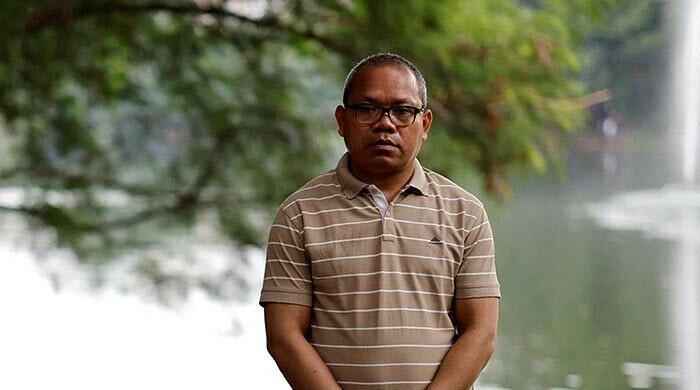DHAKA: Bangladesh indigenous people’s rights activist Michael Chakma says he was woken up by his captors earlier this month in the dark, tiny cell where he was being held and thrown into a car, handcuffed and blindfolded.
“I thought they will kill me,” he said. Instead, he was freed.
It was five years, Chakma told Reuters, since he was abducted by armed men outside a bank near the capital Dhaka. Since then, he said, the world outside did not know where he was or if he was even alive.
He was questioned about his opposition to then-prime minister Sheikh Hasina and beaten for weeks, he said, but then left alone in one of what he said were “hundreds” of cells with no sunlight at an unknown detention facility.
Hasina had ruled the South Asian nation of 200 million people for the past 15 years, marked by arrests of opposition leaders, crackdowns on free speech and suppression of dissent, and she resigned this month in the face of deadly student-led protests that killed hundreds.
Investigations into how hundreds of people were “disappeared”, and some executed, during her tenure are a priority for the interim government led by Nobel laureate Muhammad Yunus.
Human Rights Watch said in a report in 2021 that according to Bangladeshi human rights groups, nearly 600 people have been forcibly “disappeared” by security forces since 2009.
It verified 86 enforced disappearances cases in which the fate of the victims remains unknown. Others were freed, shown as arrested or found dead, it said.
The rights group and activists say the victims were held in different detention centres across the country and any involvement of the army, paramilitary or police could pose a challenge to the interim government’s investigations.
Spokespersons for Bangladesh’s military and police did not respond to requests seeking comment.
Hasina, who is living at an undisclosed location near the Indian capital New Delhi, could not be reached. Her son Sajeeb Wazed, who lives in the US and has been speaking on her behalf, did not respond to questions about these allegations.
The government has formed a five-member commission, headed by a former high court judge, to probe the disappearances.
“There are concerns that perpetrators might try and cover up their crimes,” said Asia Deputy Director for Human Rights Watch Meenakshi Ganguly. “As a first step, the security forces should release all those that are disappeared, or if they were killed in custody, provide answers to the families.”

